Officials look to combat jail overcrowding in Riley County
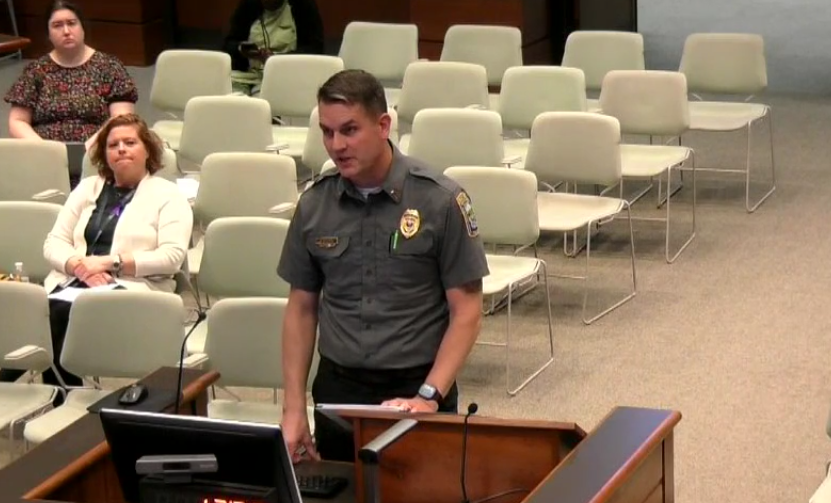
MANHATTAN, Kan. — The Riley County Law Enforcement Board heard a stark warning Monday about the county jail's growing population crisis, with officials saying the facility is straining under an inmate population that has doubled over the past five years and is now unsustainable without major expansion or relocation.
"We would again thank the law board for the opportunity to talk about this, but this is something that I would like to stress for the law board to give us some more guidance," Director Brian Peete said. "We're at the point now that we need to make decisions regarding the jail."
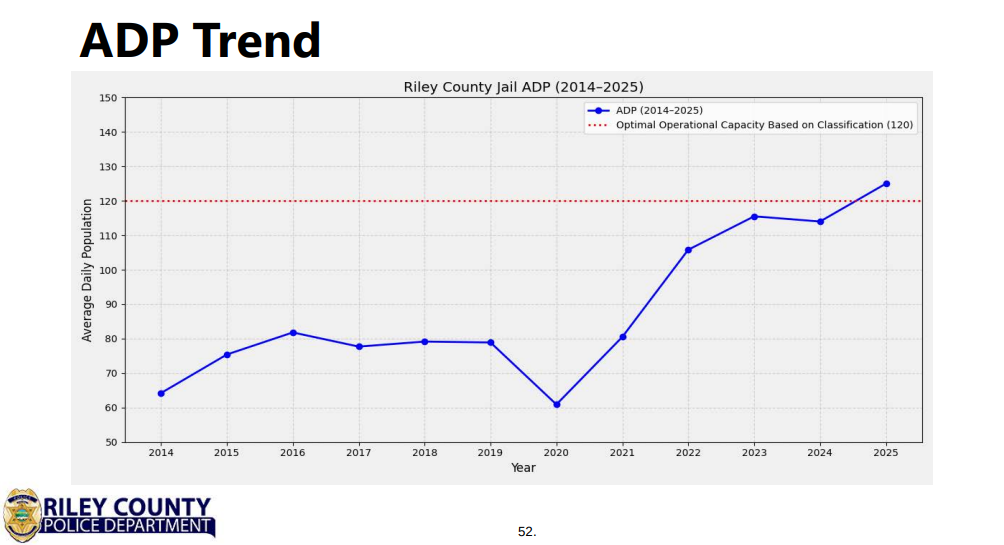
Average daily inmate population at the Riley County Jail has climbed to 131 as of mid-August, up from about 77 in 2015, according to a presentation by Riley County Police Department leadership. The jail has 147 beds but an operational capacity of only 120, meaning it is currently operating well beyond its designed limits.
"If that continues at 12 to 15 percent year over year, it's unsustainable of a situation that we're in," Riley County Police Department Lt. Jason Deehr told the board.
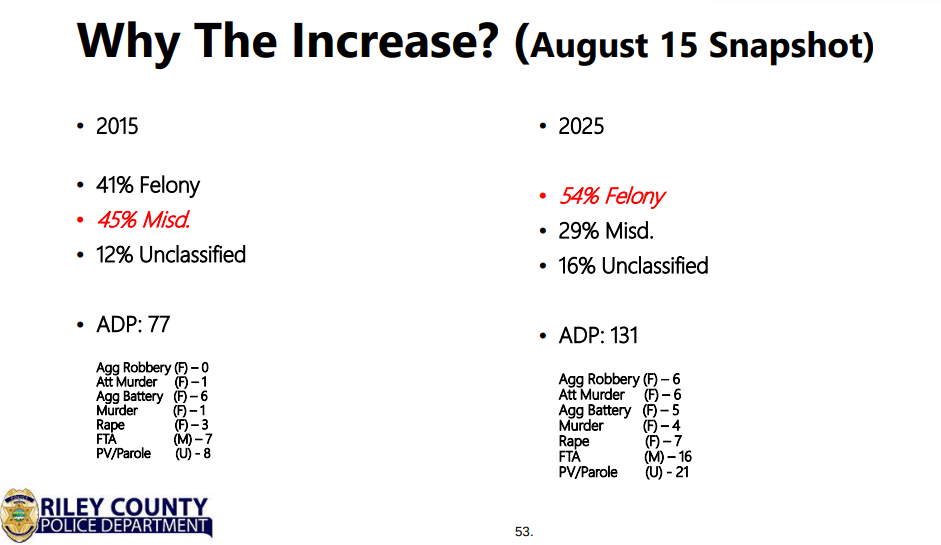
The surge is being driven not by an increase in overall crime — which remains low in Riley County — but by a spike in felony charges, failures to appear in court and parole violations. An August snapshot showed felony cases jumped to 54% of the inmate population from 41% in 2015, while misdemeanor cases fell to 29% from 45%.
"The county attorney's office and the judges are doing everything they possibly can to be extraordinarily flexible with the situation that we're all dealing with," Peete said. "We do enjoy a very low crime rate within this community, and that's because of their hard work and their dedication, but also one of the reasons is because we have the right people behind bars and when we start to see these increases, the system itself and how slow the system itself moves. Not through anyone's fault, but it's just a slow moving system. So these are things that we are keeping in mind."
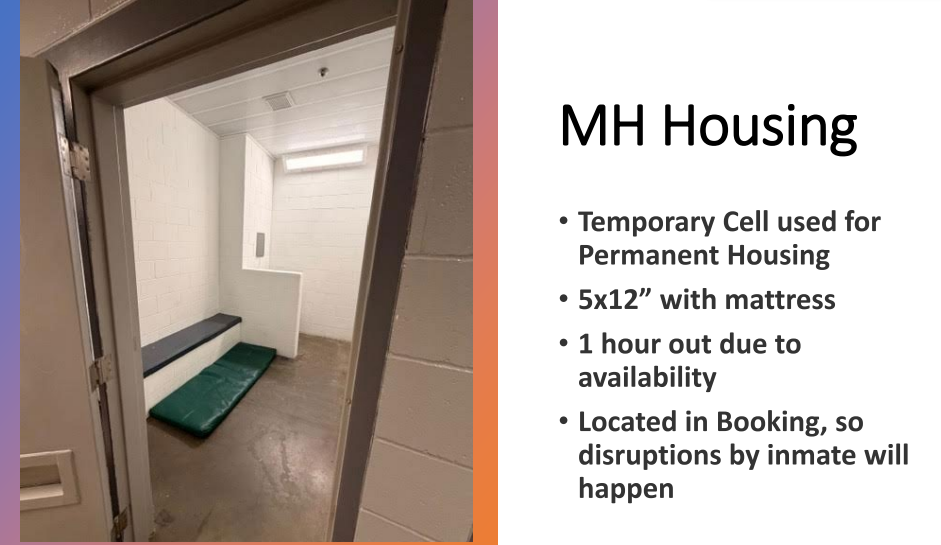
Mental health has emerged as a critical underlying issue. Nearly 40% of inmates currently take mental health medication, straining a facility never designed for such specialized needs. Some inmates are housed in temporary holding cells that were meant for short-term use but have become long-term housing due to lack of space.
Women face particularly acute challenges. The jail can house only 16 to 18 female inmates despite having space designated for them, forcing officials to place additional women in other counties. In one case, an inmate has spent nearly a year in a temporary cell designed to hold someone for hours.
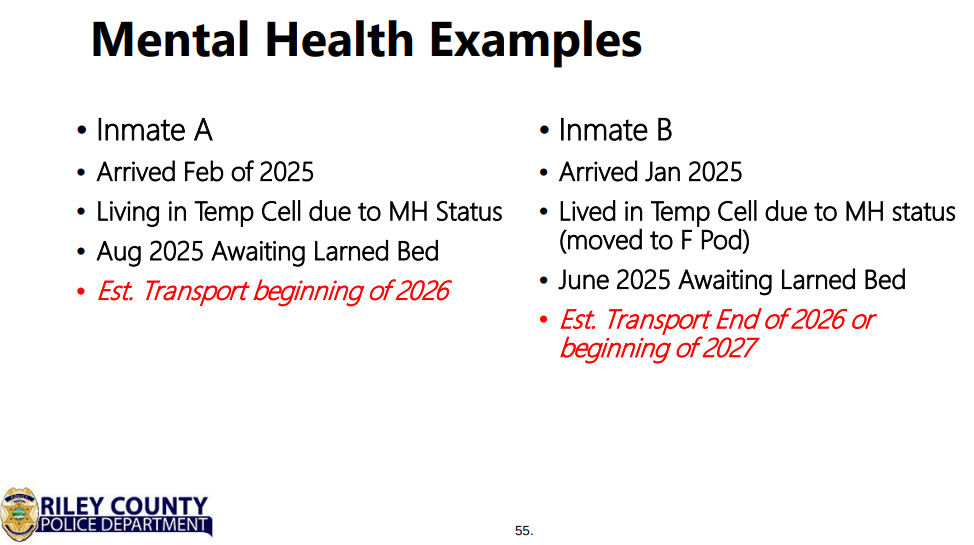
A major bottleneck is the lack of mental health bed space at Larned State Hospital. One inmate has been waiting since March 2025 to transfer to Larned for competency evaluation and has not yet had a preliminary hearing due to medication non-compliance and mental health evaluations. Another inmate's transfer is not expected until late 2026 or early 2027.
Jail officials said they are spending money beyond the standard $68-per-day cost to house inmates locally. As of mid-September 2025, the county has spent $43,340 this year to house inmates in other counties, primarily women.
To address the crisis, law enforcement officials are asking the board to consider expanding the existing facility, relocating it, or exploring other options. A feasibility study estimates that construction to expand the current facility and improve administrative space could cost $24.6 million to $27 million, depending on parking acquisition and other factors.
Law board members questioned whether increasing courthouse resources — additional judges, attorneys and court reporters — might reduce the time inmates spend in jail awaiting trial, potentially allowing for a smaller facility overall. Officials said the courthouse is already at capacity and that the regional public defender's office has at times had to stop taking new cases.
Board members also discussed potential partnerships with federal law enforcement agencies that might need additional holding space, which could help offset housing costs through federal reimbursement.
Officials stressed they are not asking for an immediate decision but want the board to begin strategic planning for what they see as an inevitable expansion need within the next few years.
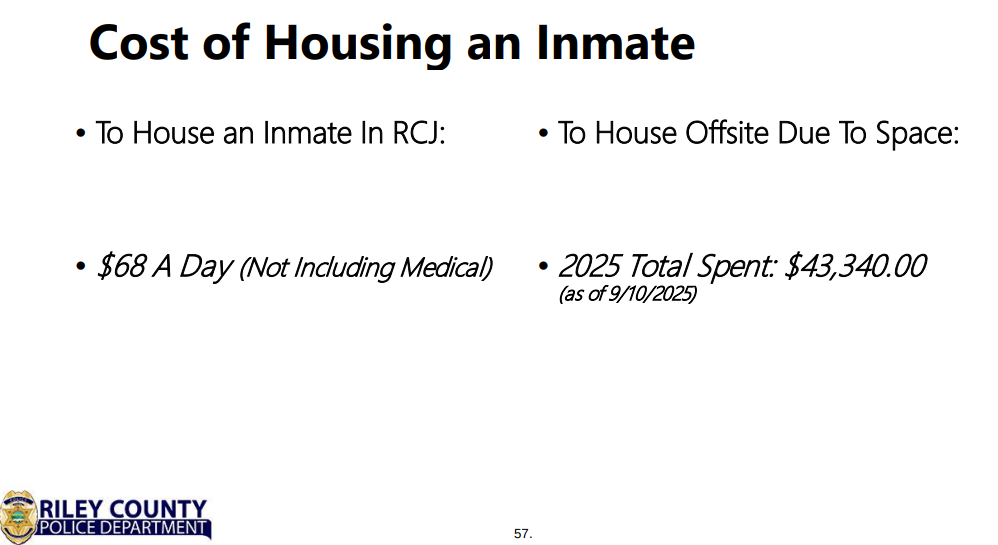
"The purpose of this is for the population trends and facility of challenges that we've been having the past couple of years and to clarify the current pressures the contributing factors and quite frankly, Deehr said. "What are the next steps?"
Despite the jail's capacity crisis, the Riley County Police Department reported overall crime remains low and is trending lower than the five-year average. Property crime was down 41% compared to the same month last year, and violent crime remains relatively stable, according to a crime report presented to the board.
The Riley County Law Board meets at noon on the third Monday of each month in Manhattan's City Commission meeting room at 11th and Poyntz.
